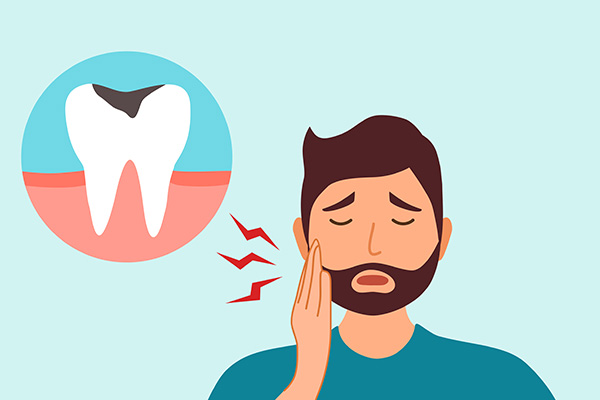 General dentistry helps you to deal with issues like toothaches. Toothaches are your brain’s way of telling you that there is something wrong with a tooth. It can be caused by things like tooth decay, damage to a tooth’s structures, or infection. A mild toothache that goes away on its own is often not a cause for concern, but one that keeps coming back and intensifying is typically a sign that general dentistry treatments are needed.
General dentistry helps you to deal with issues like toothaches. Toothaches are your brain’s way of telling you that there is something wrong with a tooth. It can be caused by things like tooth decay, damage to a tooth’s structures, or infection. A mild toothache that goes away on its own is often not a cause for concern, but one that keeps coming back and intensifying is typically a sign that general dentistry treatments are needed.
How general dentistry fixes toothaches
A toothache is a sign that something is wrong with a tooth, and the only permanent solution is figuring out its root cause. Painkillers or over-the-counter toothache products only help manage the pain. Left untreated, the problem will worsen until the pain becomes so severe, a patient must head to the nearest dentist.
Treatment for a toothache starts with the dentist diagnosing the root cause of the patient’s problem. A visual examination might be performed, and the dentist might touch parts of the affected tooth to see how the patient reacts. Diagnostics like X-rays can be used to get a clearer picture of what is going on inside a tooth.
Once the cause of the patient’s problem has been identified, appropriate treatments can be carried out. Treatments that a dentist might recommend to help address toothaches include the following:
1. Fillings
Fillings might be recommended if cavities are causing the patient’s pain. Cavities leave the inner dentin of a tooth exposed to acids, sugars, and bacteria in the mouth, which often leads to toothaches and increased sensitivity.
Filling up a cavity involves administering a shot of a local anesthetic and cleaning out the decayed parts of the tooth. A putty-like filling material is then inserted into the tooth. It forms a barrier that prevents acids in the mouth from getting into the cavity, and it serves as artificial enamel for the sensitive dentin. That is often enough to stop toothaches caused by cavities.
2. Crowns
A crown is often recommended when a tooth has been severely damaged or decayed. The crown covers the tooth's visible part and prevents irritants like acids in the mouth from getting to the tooth. This prevents further damage while restoring the tooth’s function.
3. Root canal
A root canal is used to treat severely decayed or damaged teeth with a compromised pulp chamber. The pulp chamber contains a tooth’s nerve and blood vessels. These soft tissues are prone to infection when the pulp chamber is opened up. When a tooth is intact, its pulp chamber is sealed off from the rest of the tooth, preventing acids and bacteria from reaching its soft tissues.
Root canal therapy involves removing the soft tissues in the pulp chamber and sealing the tooth back up. Teeth restored with root canal therapy are often covered with crowns to prevent further damage and decay.
Put tooth pain behind you
Are you ready to bring your toothache pain to an end? Call or stop by our San Antonio clinic to set up an appointment with our dentist.
Request an appointment or call Culebra Family Dentistry at 210-787-1554 for an appointment in our San Antonio office.
Related Posts
Regular general dentistry visits can help maintain your dental health. This can apply to your family as well. Spotting dental issues early can improve your dental health. If you want to know why general dentistry can ward off future dental problems, here are the details.Preventive general dentistry starts at an early age. Bringing a child…
General dentistry practices are focused on the long-term prevention of oral health problems for their patient to help them avoid the need for restorative care, which is more invasive and expensive. One way they help with prevention is by recommending effective toothbrushes and toothpaste.Choosing the right toothbrush and toothpaste can make a big difference in…
General dentistry recommends brushing twice daily and flossing once per day to protect your teeth against common dental problems like gum disease and tooth decay. Bacteria in the mouth can cause both issues.Oral bacteria feast on sugars left in the mouth after meals, forming plaque and acids that damage teeth. Plaque is the film that…
